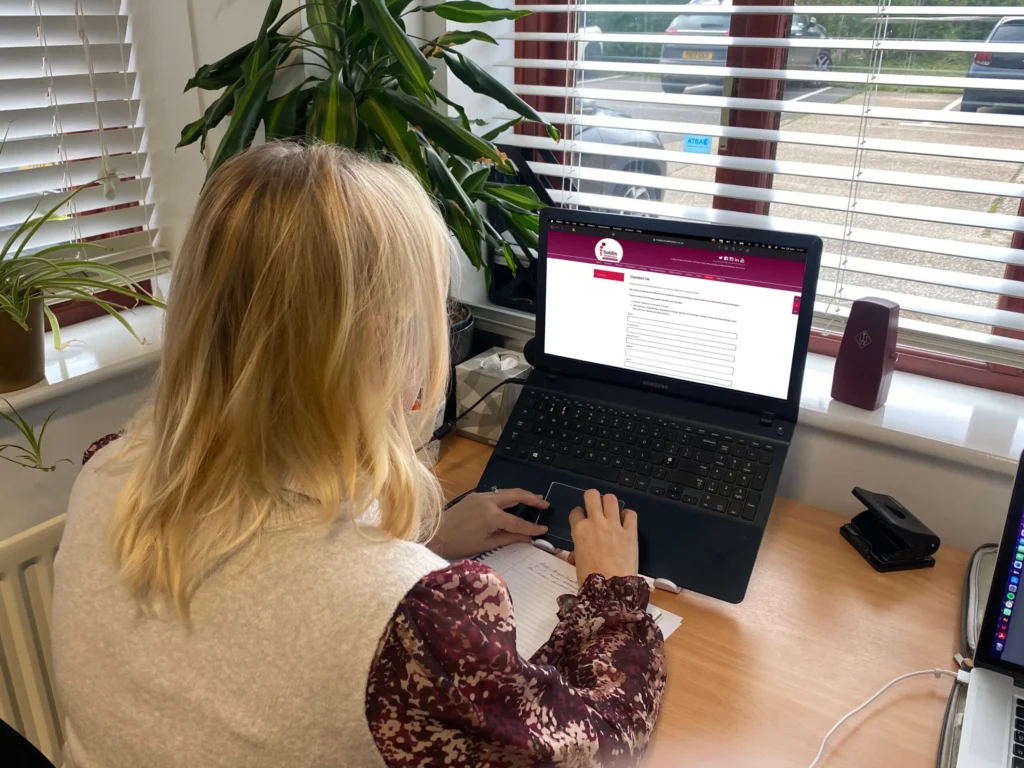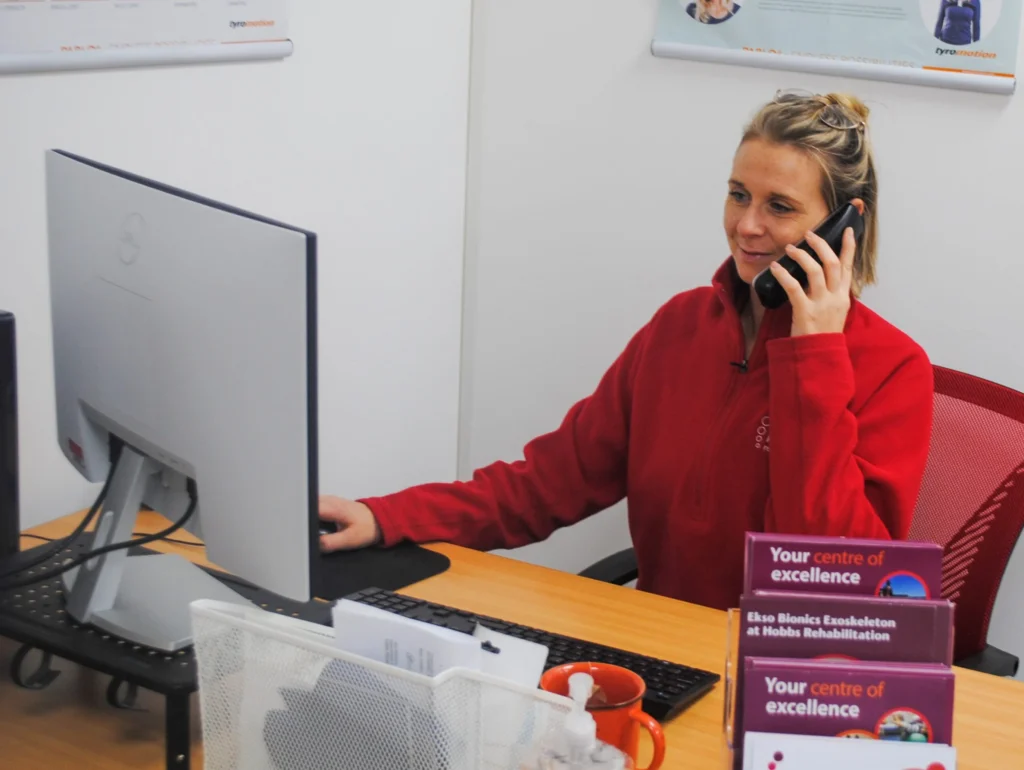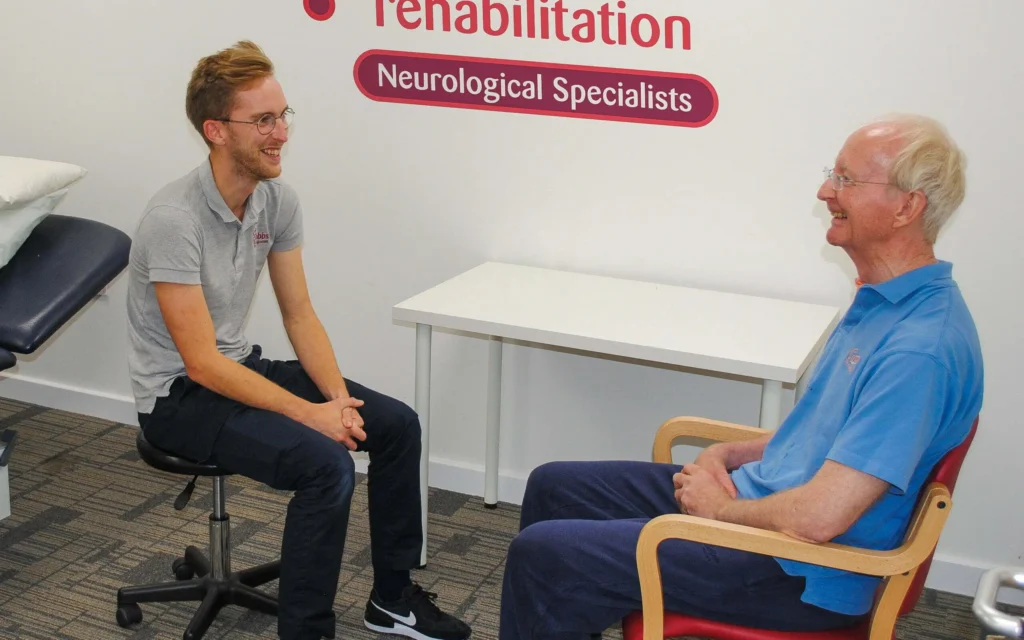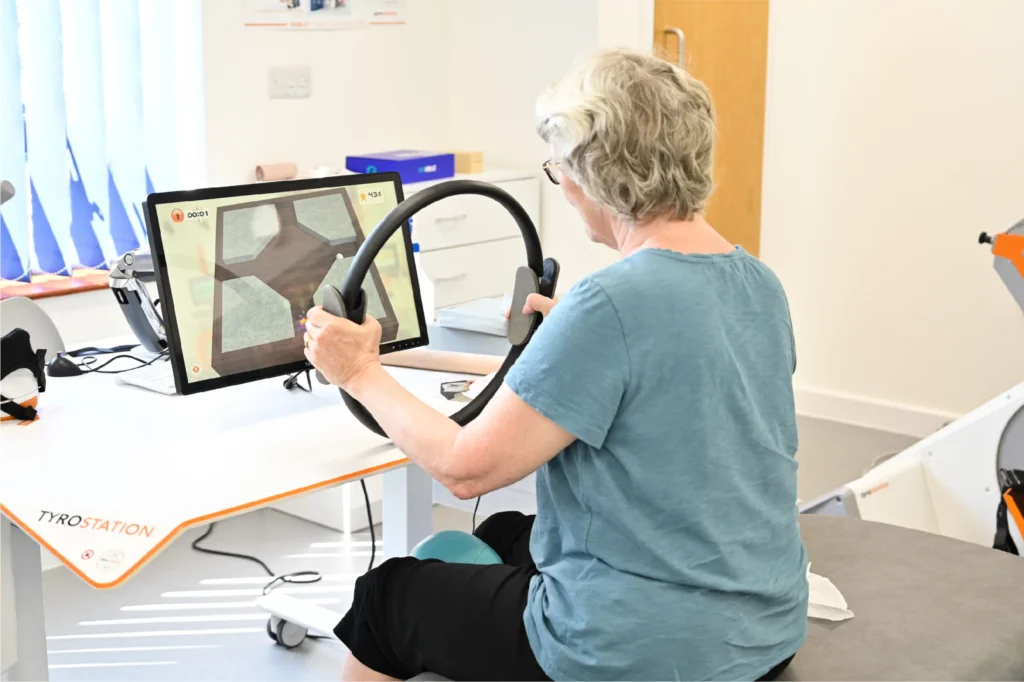Multiple Sclerosis (MS) is an inflammatory condition of the central nervous system which occurs when the immune system breaks down or damages the myelin, the protective layer which surrounds nerve fibres. This damage causes disruption to messages travelling along nerve fibres, causing them to slow down, become distorted, or not get through at all. As well as myelin loss, there can also sometimes be damage to the actual nerve fibres. It is this nerve damage that causes movement disruption, weakness and spasticity.
Your therapy could include a multidisciplinary approach involving physiotherapists, occupational therapists, speech and language therapists and clinical neuropsychologists and your suitability for intensive rehabilitation will all be discussed with your therapist in your initial assessment.
Hobbs Rehabilitation offer the Mollii Suit which may also help with your condition.
What is Relapsing-Remitting Multiple Sclerosis (RRMS)?
Relapsing-remitting multiple sclerosis is the most common and affects around 85% of those diagnosed. During relapse periods, symptoms appear or are exacerbated. In the remitting periods, symptoms ease or fade away, either partially or completely.
What is Primary Progressive Multiple Sclerosis (PPMS)?
A small percentage of people, about 15%, are diagnosed with primary progressive multiple sclerosis. Primary symptoms present and then progress gradually.
What is Secondary Progressive Multiple Sclerosis?
Most people who have relapsing-remitting symptoms will go on to develop secondary progressive multiple sclerosis. Secondary progressive is usually diagnosed when there is a gradual progression of symptoms with no periods of remission or only a slight ease in symptoms.
What is Benign Multiple Sclerosis?
Benign multiple sclerosis is when there is a small number of relapses followed by complete recovery of symptoms. However, symptoms can reoccur many years after a period of remission.
What is Relapsing-Remitting Multiple Sclerosis?
Relapsing-remitting multiple sclerosis is the most common and affects around 85% of those diagnosed. During relapse periods, symptoms appear or are exacerbated. In the remitting periods, symptoms ease or fade away, either partially or completely.
What is Primary Progressive Multiple Sclerosis (PPMS)?
A small percentage of people, about 15%, are diagnosed with primary progressive multiple sclerosis. Primary symptoms present and then progress gradually.
What is Secondary Progressive Multiple Sclerosis?
Most people who have relapsing-remitting symptoms will go on to develop secondary progressive multiple sclerosis. Secondary progressive is usually diagnosed when there is a gradual progression of symptoms with no periods of remission or only a slight ease in symptoms.
What is Benign Multiple Sclerosis?
Benign multiple sclerosis is when there is a small number of relapses followed by complete recovery of symptoms. However, symptoms can reoccur many years after a period of remission.
Through a variety of treatment techniques, our specialised physiotherapists aim to promote recovery during relapses and maximise functional potential. Neurological physiotherapy for MS can help to:
Our specialist occupational therapists aim to improve areas of personal care, work or leisure that are becoming difficult. This can be achieved through:
Communication and swallowing are a key part of life and if you’re experiencing difficulty it may be having a huge impact on quality of life. Specialist speech and language therapy may be able to help you through:
Our clinical neuropsychologists can help to provide:

Enquire today about any of our services or packages

You will be contacted to determine your needs and assessment location

Your therapist will recommend the best course of treatment

Once you have booked you will be ready to start your treatment plan.
During the assessment, your therapist will discuss your clinical history and recommend the best treatment course. Our intensive rehabilitation packages, which achieve better results in a shorter time span, can be suitable for some people with multiple sclerosis. Your therapist will discuss which therapy is best suited to your condition as well as consider your needs and personal goals and refer you to our wider multidisciplinary team when required.
We offer our services in inpatient, outpatient and community settings – find your nearest centre.
Alternatively, call us on 01962 779796 to talk with our team or fill out our enquiry form on our contact page.
We accept self-referrals and referrals from Medico-Legal, health and social care professionals and the charity sector.
Don’t just take our word for it – take theirs